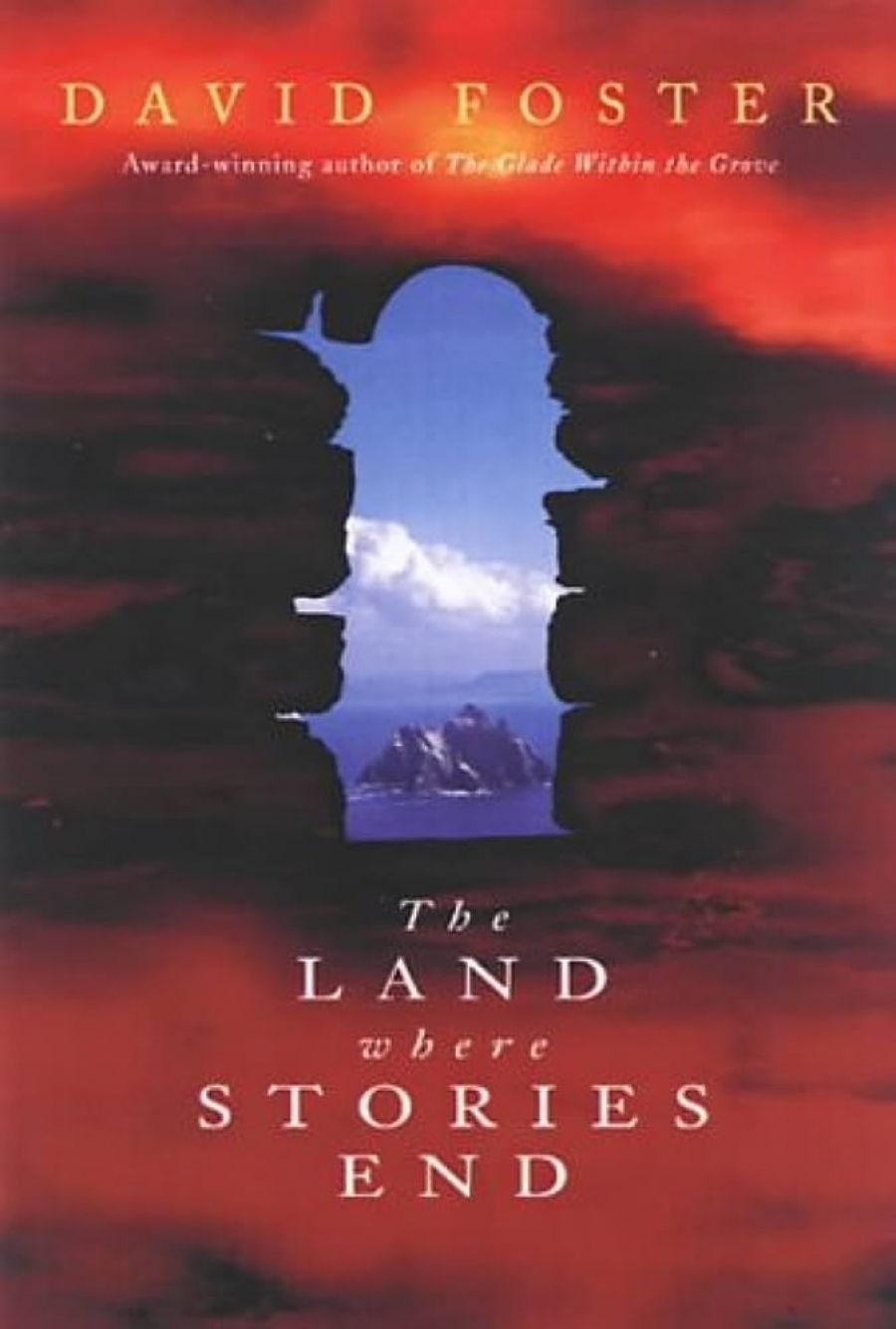
- Free Article: No
- Contents Category: Fiction
- Review Article: Yes
- Article Title: Foster’s Fantasy for the Age
- Online Only: No
- Custom Highlight Text:
‘A king had a beautiful daughter,’ begins David Foster’s new book: 204 pages between grey boards, a reproduction of Filippo Lippi’s Madonna con Bambino e due angeli on the covers, the author’s name itself visible only on the acknowledgements page, in rather small writing.
- Book 1 Title: The Land Where Stories End
- Book 1 Biblio: Duffy & Snellgrove, $35 hb, 204 pp
Foster’s new book, his fourteenth, is in a genre that has, shall we say, a dubious respectability: the contemporary spiritual allegory, the adult fairy story with a spin. One thinks of new-age bestsellers such as Robert Bly’s Iron John or Women That Run with the Wolves, which give such pleasure to humorous newspaper columnists everywhere, and, even further from the regard of the audience for literary fiction – like the readers of ABR – management self-help books such as the extremely popular Who Moved My Cheese? (featuring a group of mice who learn lessons that can be applied in any corporation facing rapid and large-scale change.) You could even say that it is one of those moments when the hypermart of ideas where everything is available – postmodernism – produces what appears to be its own critique: the recasting of Western psychological preoccupations in mythic terms, in an attempt to cut through the weight of abstract concepts, scientism, statistics-based knowledge and journalistic blabber, to find some true stories of the soul: words that might play the same part in our lives as the precepts of the great religious texts, without any of the dismayingly anachronistic moral preoccupations. This kind of thing sells, big time. Its existence has a lot to do with commercial imperatives of publishing in an era of moral confusion and obsessive self-absorption.
Such books run the risk of being synthetic, of lacking resonance, which presumably has something to do with the fact that myths and fairy stories are collective, while modern literary production is individualistic. They also have a tendency to be kitsch. The Land Where Stories End, a book by a gifted novelist and essayist, doesn’t avoid these faults. In fact, it shows both of them in abundance. There is the twee manner, both blokey and childish:
Generally speaking, after a time in your barrique [a kind of coffin-shaped wine cask] you determined not to eat, and later still not to drink, because your barrique was locked with strong locks which were never meant to be opened, so that wees and poos you did built up, until you could scarcely move.
His current partner was past childbearing age and he could have more children with this girl. Not that he really wanted more children, mind. He couldn’t feed the ones he had. But he did so enjoy doing a dirty thing with a girl.
Foster is fond of his euphemisms, and uses them often. There is the way various features of the modern scene – animal rights and deforestation, feral dykes, can a man really be happy with just one woman – turn up in fairy-tale garb: ogres who drown a little girl – ‘did she honestly suppose she could eat all those salmon, every one of which was taken from the water by her father, without herself having, at some stage, to breathe in water as those poor fish were forced to breathe in air?’
The tales come from a fantasy early Ireland, with monks and leprechauns, nods to Yeats, and lots of digs at Christianity. The inventions have an arbitrary air to them: Foster doesn’t make any of it compelling on its own terms, and the jokes – a leprechaun with stone-wash jeans, the thermoses of blood the ogres carry around with them – are arch without being especially funny. Nor are the stories particularly well-paced or constructed: there’s a fuzziness to the writing, a slapdash quality that has the eyes slipping off the page. The whole book has an air of something that was dashed off for a summer edition of a newspaper’s book pages and began to take itself a bit too seriously. Towards the end of the book, as the woodcutter, having been through many adventures and seen many a thing on his spiritual journey, joins up with a gang of monks, you start to get Wisdom, and it sounds like this:
The saint was beginning to feel he wished to be alone on the dry and dusty road (at which point it becomes a dark and stormy one) and the woodcutter, who had sought to abandon his own dark and stormy road, was learning you can’t easily jump from one road to another. Whichever road you have chosen is the road that has been chosen for you, and your destination, irrespective of your path, is the same in any event.
By the time you read this, your confidence in Foster’s sincerity has been eroded to the point where you are likely to want to roll your eyes.


Comments powered by CComment